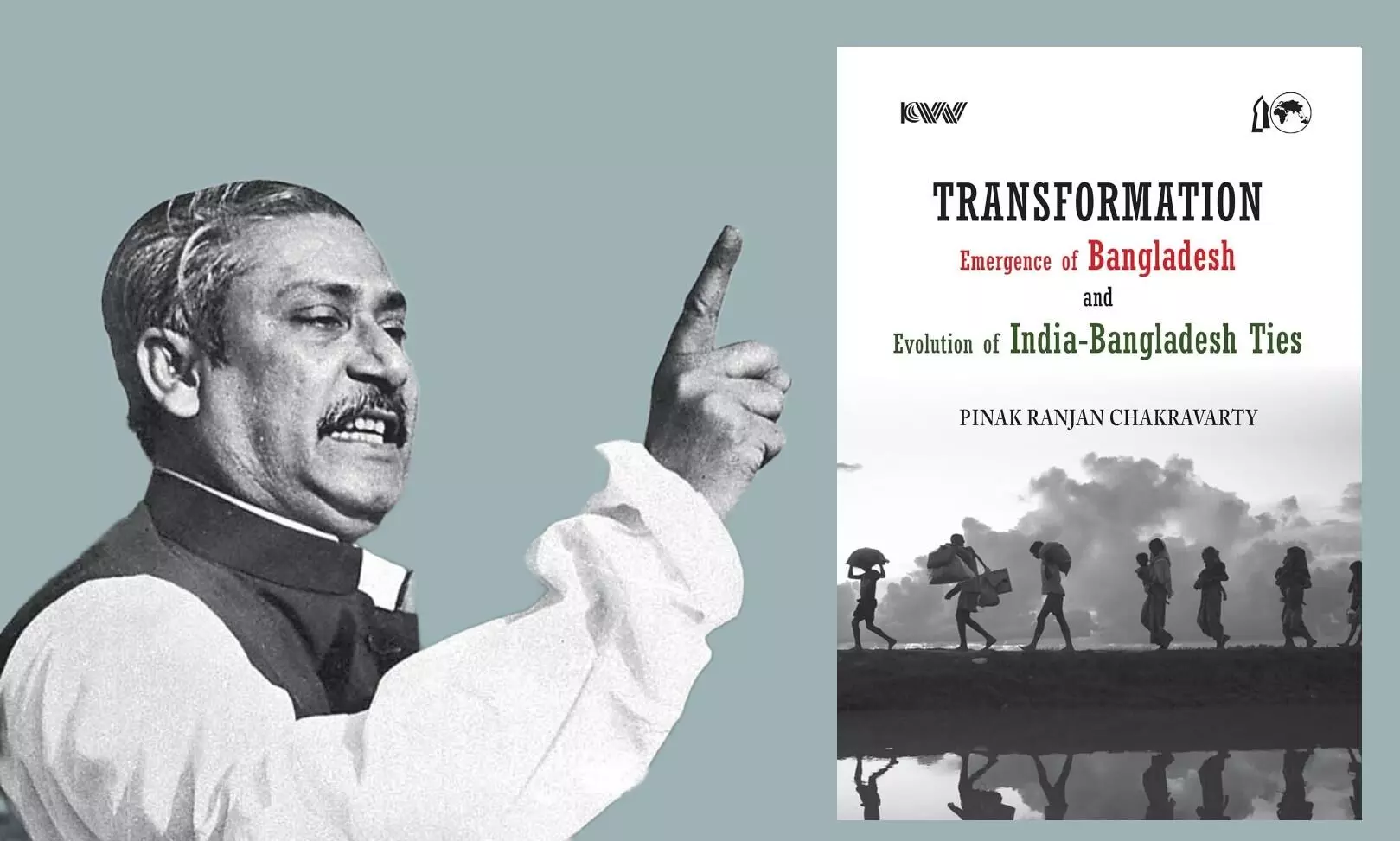An insider’s chronicle
‘Transformation: Emergence of Bangladesh and Evolution of India-Bangladesh Ties’ by Pinak Ranjan Chakravarty offers a comprehensive analysis of the relations between the two countries, covering historical, political, and security aspects— making the book an essential read for scholars and observers of the region

This is the latest book written by one of the most seasoned diplomats of the Indian Foreign Service, who was also the High Commissioner to Bangladesh. He is Ambassador Pinak Ranjan Chakravarty. The book under review, published by the Indian Council of World Affairs (ICWA) and KW Publishers Private Limited, is a must read for all Bangladesh watchers, especially those studying Indo-BD relations evolving for over the last 50 years.
Ambassador Chakravarty has done well in structuring his book into various segments, beginning from the minutest details of history to the various Heads of States whose writ ran in Bengal from time immemorial.
The chapter on the Partition of India, leading to the first step towards the creation of Bangladesh and the communal undertones, is very well written. The book is very handy, and a ready reckoner for the students of history as well as academics pursuing history and politics of Bangladesh. In brief, it deals with the subjects comprehensively, right from the East Bengal to the East Pakistan days, rise of Sheikh Mujibur Rahman and other related developments. The author has squarely dwelt upon the blunders committed by the Pakistani rulers in the run up to the liberation of Bangladesh in 1971. The emergence of Bangladesh in the chapter under the same name is not to be missed, as it is documented convincingly, supported by various facts, purely based on history.
However, what is significant in the book under reference, is the detailed account of the evolving ties between India and Bangladesh during and after the formative years of Bangladesh. The successive governments of the Bangladesh Nationalist Party (BNP) and the Awami League (AL), along with the political challenges during their times, involvement of religion into politics, role of the Islamic bloc countries, emergence of terror groups, impact of Al Qaeda and ISIS, counter-terror measures, and even the rise of several religious fundamentalists, have been adequately addressed by the author. Significantly, the bilateral ties, especially in the aftermath of the Sheikh Mujibur Rahman rule and the BNP government, are worth a read, including the change in political and security scenario after the arrival of Rohingya refugees in 2017.
For security professionals too, the book remains interesting for their Bangladesh Nationalist Party-Jamaat-e-Islami (JeI)-Pakistan links. Furthermore, the various bilateral challenges faced by both the countries have been duly dealt upon the by Ambassador Chakravarty.
As a security professional myself, I find the book very gripping because the aspects of security have been comprehensively dealt upon by the author, and that will always be conveniently helpful to the scholars and security experts of India and Bangladesh.
At the point of writing, we have come across a wave of anti-India tirade pervading Bangladesh when the forces inimical to Indian geo political and security interests have unleashed a vicious campaign to boycott Indian goods. Hopefully, this malaise will not catch on like what is happening in the Maldives. Yet, Ambassador Chakravarty’s book, which has given a complete background of evolving Indo-BD relations, will help the readers to understand the nuances of the relationship and help the Indo-BD watchers to provide a prescriptive lead to douse fire on the prevailing problems.
Similarly, other outstanding problems between these countries merit resolution, if the contents of Ambassador Chakravarty’s book are referred to or consulted. I leave it to the readers to find for themselves about the book to retain their academic curiosity.
The 233-page book surely deserves a place in the bookshelf of the scholars pursuing Indo-BD relations. However, the book is perhaps slightly exorbitantly priced at Rs 1880/- which possibly could have been a little less. Yet, if the libraries have adequate stock, then the scholars may have easy access to this book quenching their inquisitiveness.
The writer is a retired IPS officer, a prolific reader and an occasional reviewer of books of all types. Views expressed are personal



